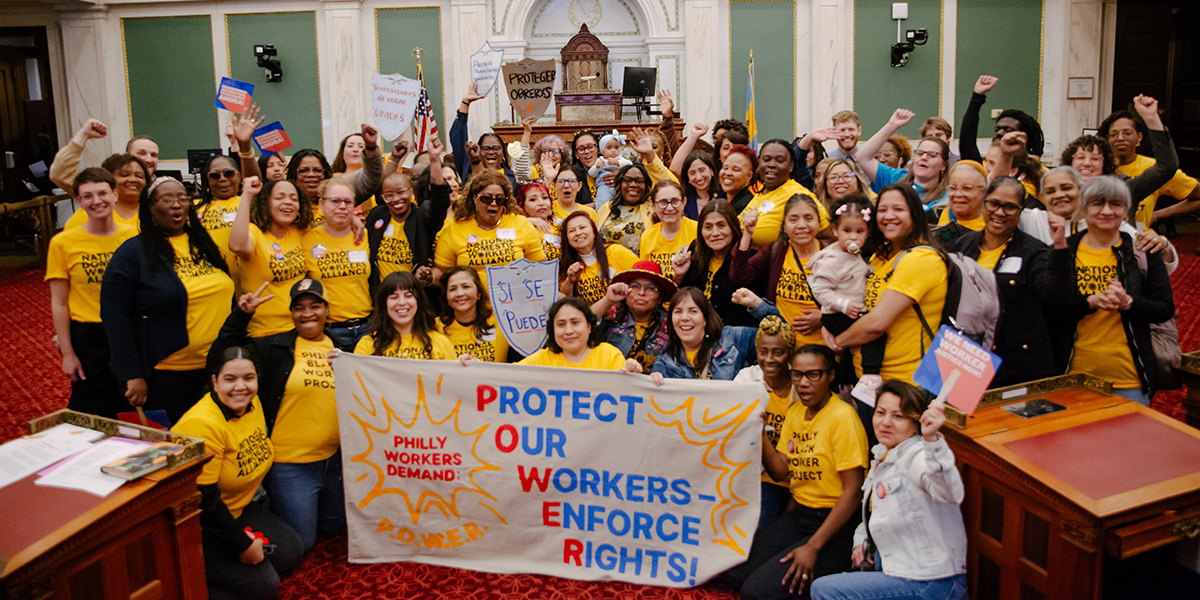 Photo by Rachael Warriner
Photo by Rachael Warriner
After three years of domestic worker-led organizing, Philadelphia passes the POWER (Protect Our Worker-Enforce Rights) Act!
This is a groundbreaking law that:
- Expands protections against retaliation for workers that speak out against abuse
- Strengthens labor enforcement of existing labor laws, including the Philadelphia Domestic Workers Bill of Rights, Wage Theft Ordinance, Paid Sick Leave Law, and more
- Holds violating employers accountable
- Ensures that the city government has the tools and resources to protect workers
- Protects over 750,000 workers across the city, regardless of immigration status
- And much more, read more about the Power Act here!
This victory was made possible by a powerful, cross-sector coalition of workers, led by domestic workers, restaurant staff, warehouse workers, and more, who have long been excluded from basic labor protections and have organized to demand change. Our prime sponsor for the bill was Philadelphia Councilmember Kendra Brooks.
The POWER Act is a groundbreaking law that sets a precedent for how cities can step in where federal labor protections have fallen short. At a time when workers across the country—particularly immigrant workers, domestic workers, restaurant and service workers, and other low-wage laborers—face rollbacks in rights and limited paths to justice, Philadelphia is leading the way.
Want to learn more? Read more about the Power Act here!
Read more about the Power Act
![750,000 workers in Philly now have new labor protections with the POWER Act!]()
![750,000 workers in Philly now have new labor protections with the POWER Act!]()
